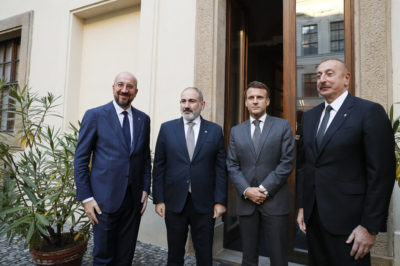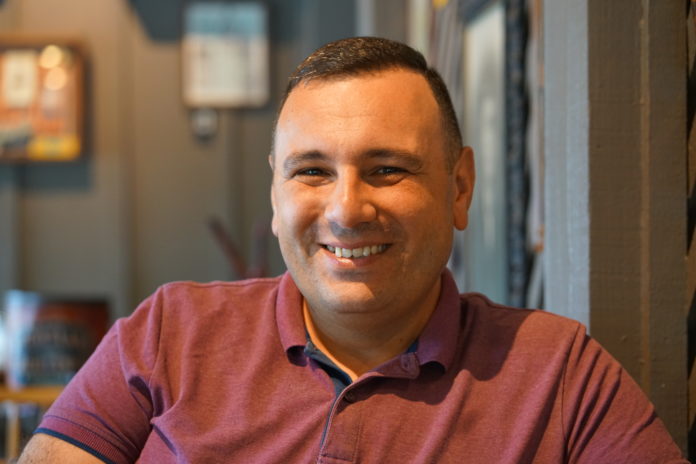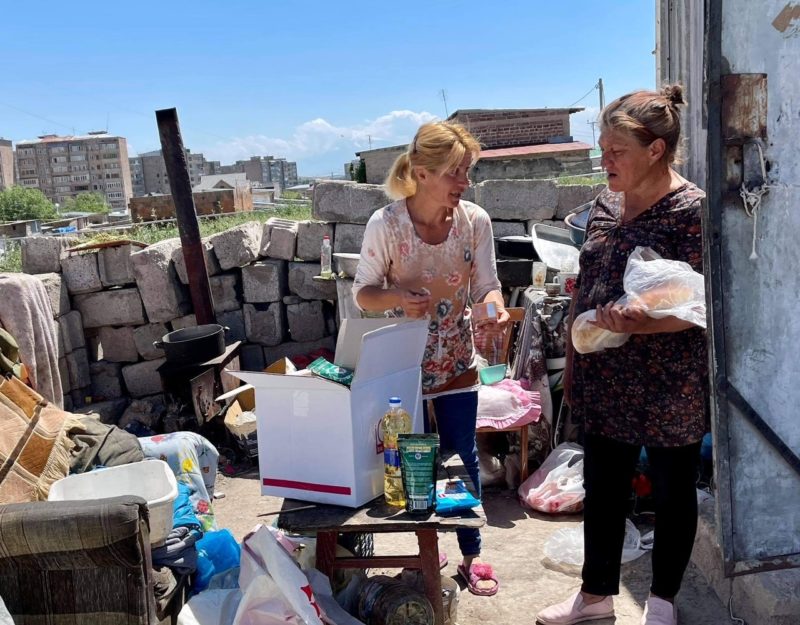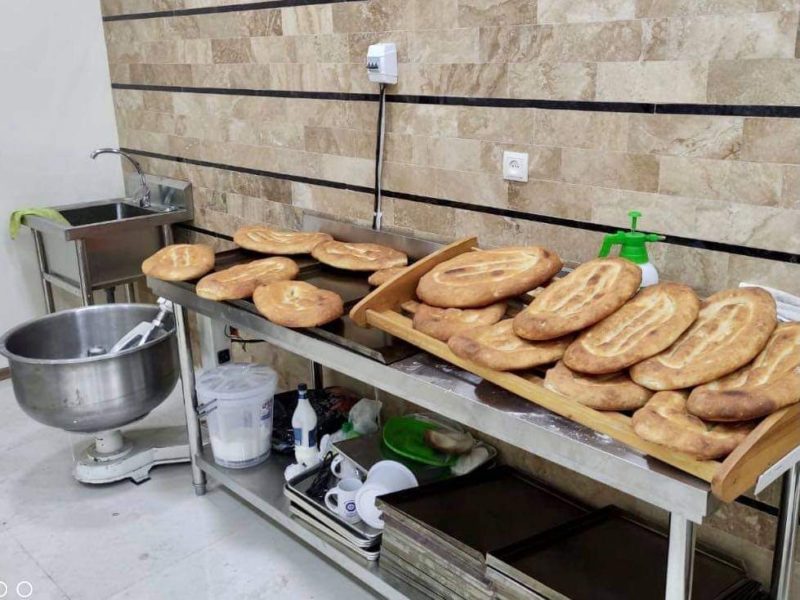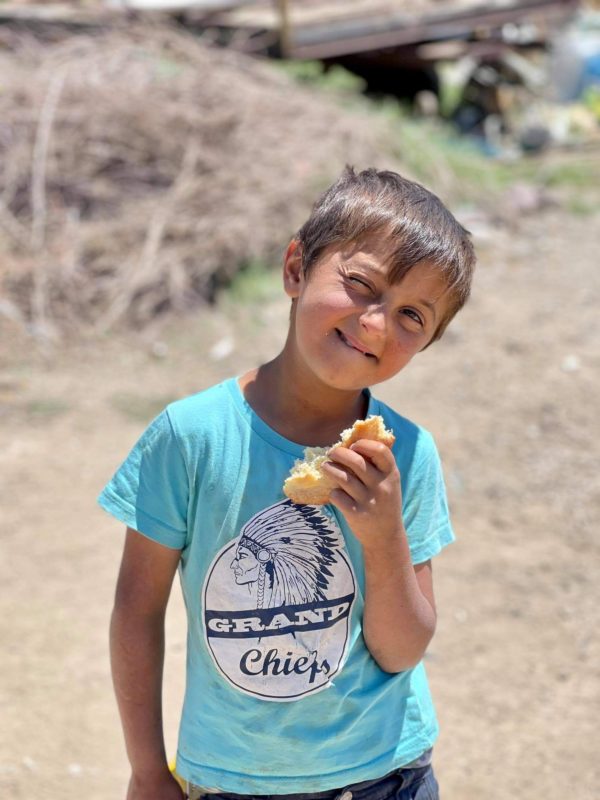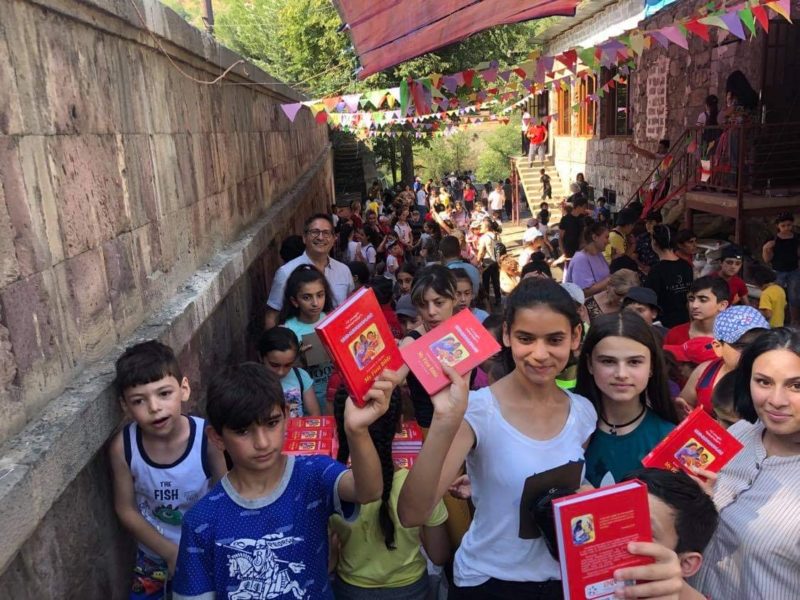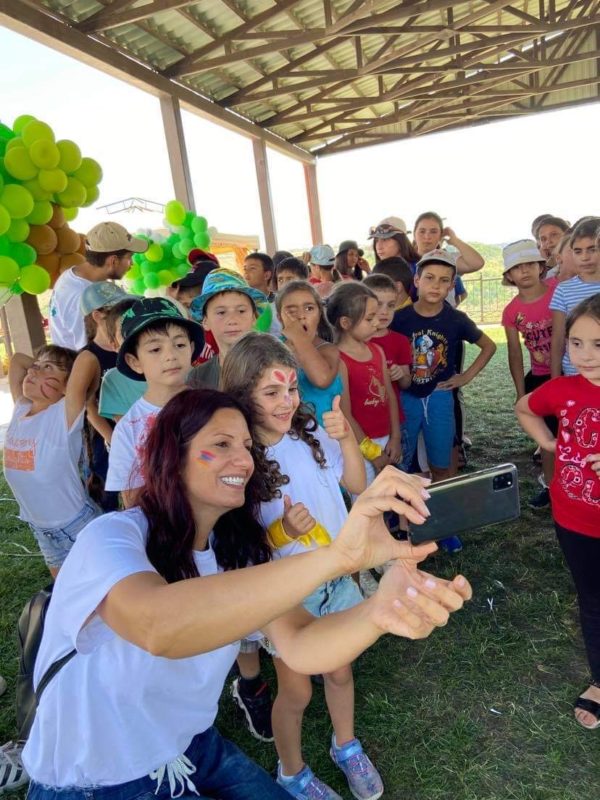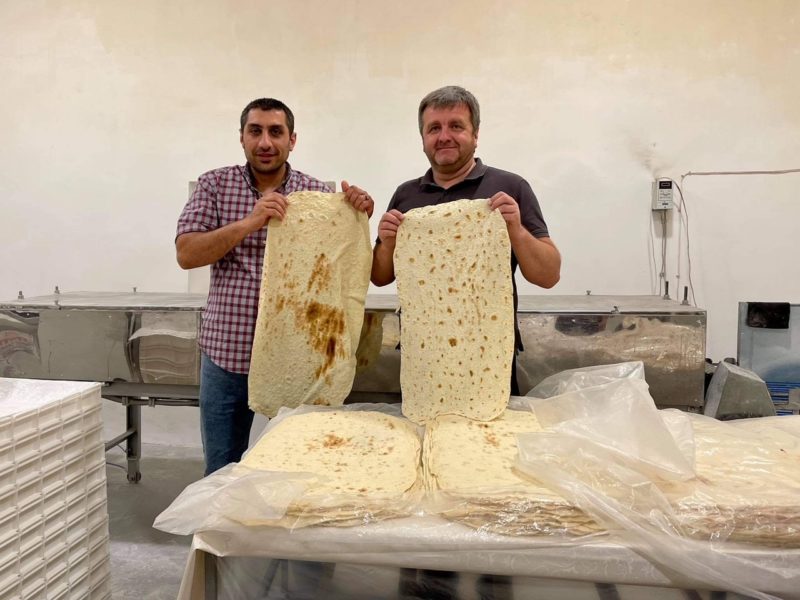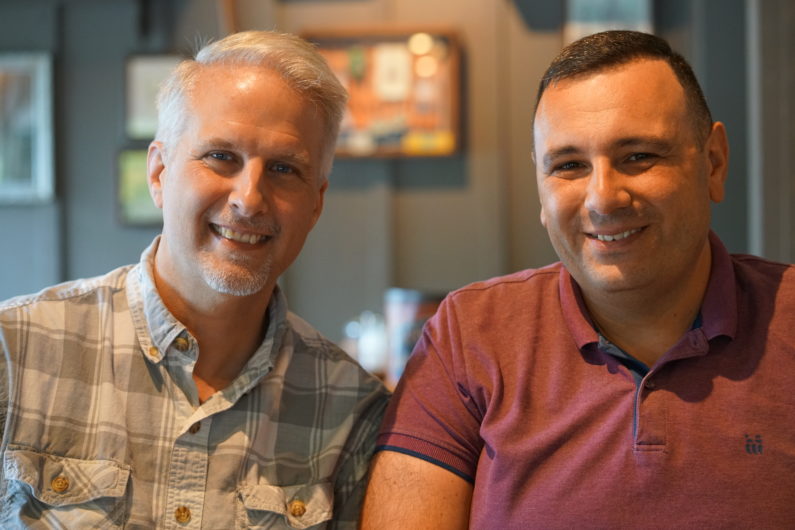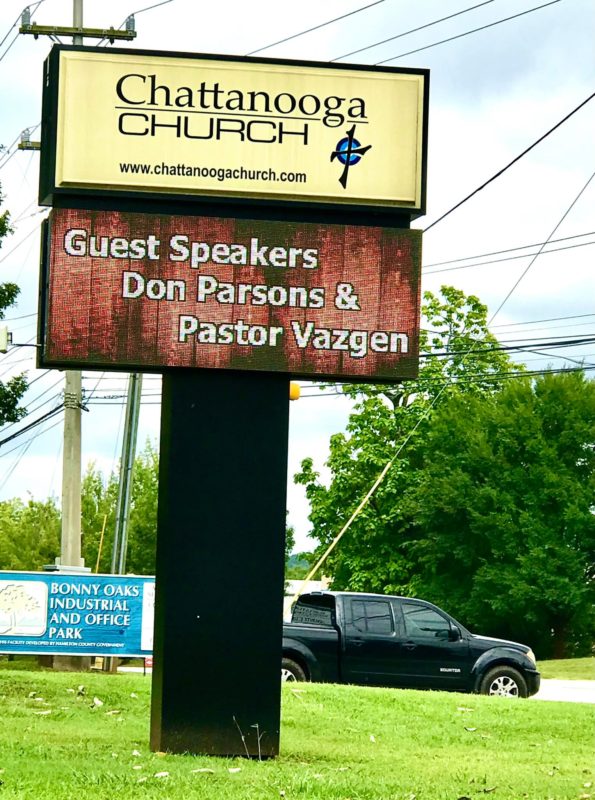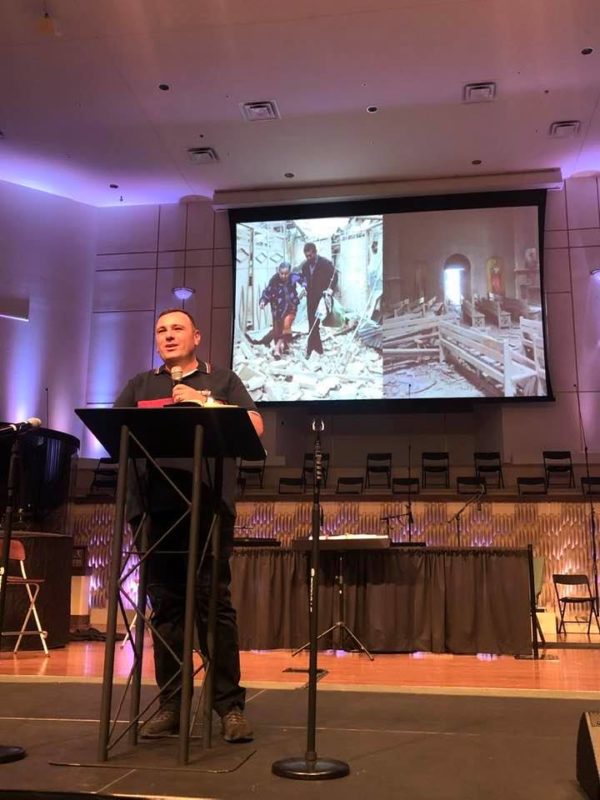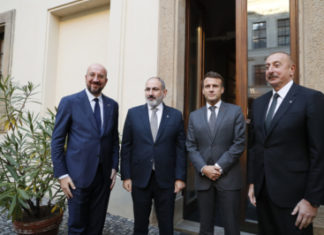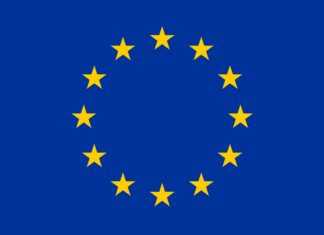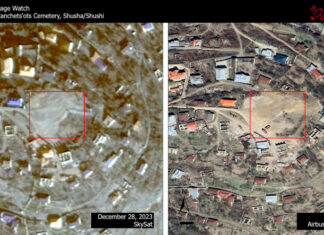TEWKESBURY, MA – Vazgen Zohrabyan, the pastor of Abovyan City Evangelical Church, is visiting the United States this summer. He and his church helped refugees from Artsakh who had reached Abovyan during and after the Artsakh war at the end of 2020. Zohrabyan is giving talks and sermons about the situation in Armenia and Artsakh in various parts of the United States, and part of his trip is in collaboration with Mission Eurasia.
Abovyan City Evangelical Church
Though his church, and a recently established NGO called MIAK (Manukneri inknazarkatsman yev arajentatski kentron [Child Development and Progress Center]), Pastor Vazgen has spearheaded efforts to help refugees from the recent Artsakh war. The Abovyan church had sent a few youth as missionaries to preach in Artsakh and they returned right before the 2020 war broke out. As noted in a March article this year in the Mirror-Spectator (Mission Eurasia Brings Humanitarian Aid and Evangelism to Artsakh War), the church hosted refugees in its own building as well as helped find places for many more in hotels, restaurants and private homes in Abovyan during the war. The number reached around 2,000 in this small city not far from the Armenian capital of Yerevan, and the organization Mission Eurasia, headquartered in Tennessee, stepped in to help.
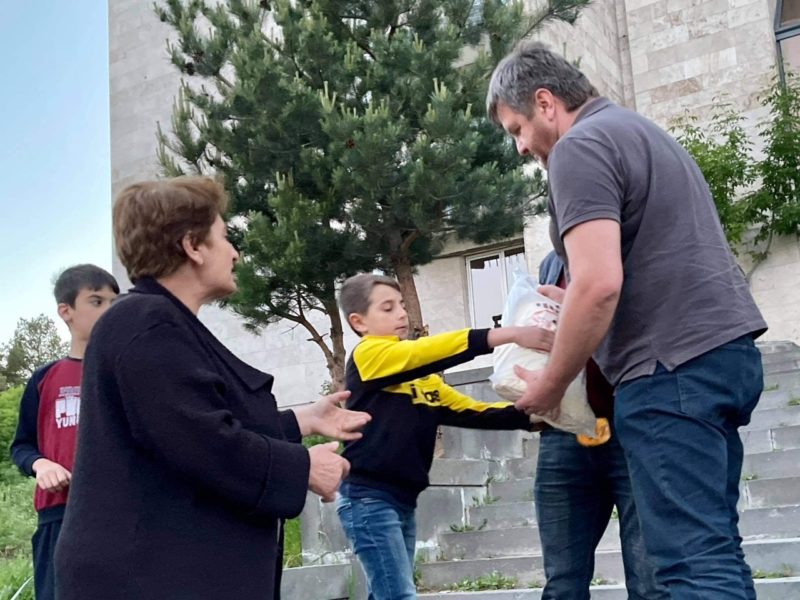
Zohrabyan related that throughout the war, he repeatedly told the refugees, “You are safe here. You are secure. The frontline is so far away from here.” Yet one night, on October 1, 2020, during a church meeting at night, suddenly the city was under attack by a drone or rocket from Azerbaijan. Zohrabyan said people speculate that the fuel tanks underneath Abovyan may have been a target.
The refugees became anxious again and for many days on end, Pastor Vazgen had to try to reassure them that they were safe, yet even he was nervous. He said his children were in the church building during the incident. Fortunately, the Armenian armed forces intercepted the rocket or drone and neutralized it.
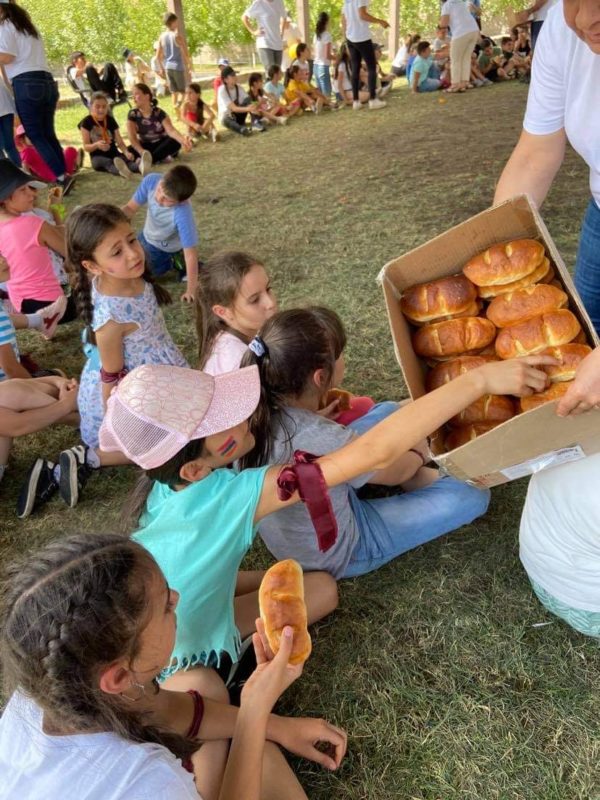
In all, Zohrabyan summarized, his church and supporters were able to help more than 12,000 families get food supplies, and they also provided spiritual support whenever possible. Many of these families have already left Armenia to return to Artsakh and the church building itself no longer hosts refugees.
